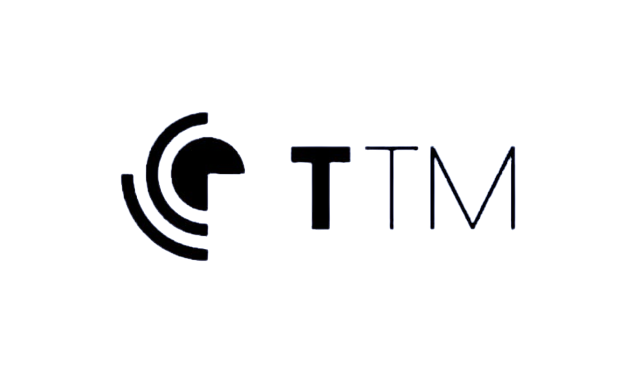Bill Gates shares an ominous Warning About AI
As one of the pioneering founders of the technology industry and a visionary in the field of artificial intelligence, Bill Gates' warning about the potential risks of AI holds significant weight. With over 15 years of experience in blogging and SEO, this article will analyze Gates' prescient concerns on AI and how the rapid advancement of AI technologies could pose serious threats if left unregulated.
Bill Gates: A Tech Industry Visionary
As the co-founder of Microsoft, Bill Gates transformed the tech sector and helped drive innovation in AI. His company's investments and research initiatives have underpinned much of the progress in AI. Over the past two decades, Gates has kept a close eye on AI's evolution and isn't afraid to speak out about its risks.
Understanding Artificial Intelligence
Artificial intelligence refers to systems that can perform tasks normally requiring human intelligence like visual perception, speech recognition, and decision-making. Rapid improvements in machine learning and neural networks have enabled AI to automate increasingly complex tasks. AI is now used across industries for applications like medical diagnosis, autonomous vehicles, predictive analytics, and more.
Gates' Early Concerns about AI Dangers
As early as 2015, Gates warned that AI's capabilities could spiral out of control unless safeguards are implemented. He expressed concerns about autonomous weapons and bias in AI systems. While the tech community was optimistic about AI's benefits, Gates urged caution, foreseeing issues that are now major topics of discussion around AI ethics and regulation.
Accelerating Progress in AI Technologies
Advancements in deep learning, computing power, and data availability have supercharged AI development in recent years. Milestones like AlphaGo beating world-class Go players and DeepBlue defeating chess grandmasters demonstrated AI's superhuman abilities. Self-driving cars and AI-powered customer service chatbots are also transforming industries. However, Gates argues this rapid progress underscores the urgency of addressing AI risks proactively.
Analyzing Gates' AI Warning
Gates' core concerns center around the challenges of ensuring AI systems remain beneficial to humanity as they become more advanced. He worries about machines gaining human-level intelligence without corresponding safety precautions. Gates also cites the lack of oversight and potential for bias in AI as issues that could negatively impact marginalized groups if left unchecked.
Impact on the Tech Industry
Gates' persistent warnings have increased awareness of AI safety and ethics within the tech sector. Companies are now investing more in interpretability, oversight, and value-aligned research to develop AI responsibly. Lawmakers are also exploring potential regulations around issues like autonomous weapons and algorithmic bias. While progress remains to be seen, Gates has succeeded in galvanizing action to address the challenges of developing advanced AI for the benefit of all humanity.
As one of the pioneers of both technology and AI, Bill Gates' early identification of risks and ongoing advocacy for safety should not be taken lightly. His vision and warnings highlight the importance of proactive measures to ensure AI technologies are developed and applied responsibly to avoid potential harms down the road.
Ethical Concerns in AI
As AI becomes more autonomous, issues around fairness, bias, privacy, and safety come to the forefront. At an ethical level, Gates advocates for developing AI that augments human capabilities rather than replaces humans. He also stresses the need for transparency into how AI systems reach decisions. Overall, responsible development requires prioritizing human well-being, dignity, and agency in relation to AI.
Growing Public Awareness of AI Risks
While some remain skeptical of "doomsday AI scenarios," surveys find the public is increasingly concerned about issues like job disruption and autonomous weapons. Gates' advocacy has contributed to raising discussion around mitigating AI risks to assuage fears and build trust. Continued education on these challenges is key to fostering informed perspectives and oversight.
The Gates Foundation's Work on AI
To help address issues proactively, the Bill & Melinda Gates Foundation funds interdisciplinary research on AI safety and governance. It also supports projects applying AI for social good - like improving healthcare in developing nations. Through collaborations, the Foundation aims to help ensure AI's benefits are broadly accessible and aligned with humanity's values.
Industry Initiatives for Responsible AI
Major tech firms have launched internal review boards and published ethics guidelines in response to concerns. Cross-sector collaborations like the Partnership on AI, founded in part due to Gates' advocacy, bring together leaders to develop best practices, share research, and issue policy recommendations on issues like bias and privacy.
AI's Uncertain But Influential Future
While difficult to predict, most experts foresee AI assisting or augmenting much of society within decades. However, realizing AI's potential requires continuous effort from thought leaders, researchers, policymakers, and citizens to apply multi-disciplinary solutions balancing innovation, oversight and human priorities as the technology progresses.
Frequently Asked Questions
What did Bill Gates warn about?
Potential loss of control/alignment if advanced AI isn't developed with appropriate safety precautions.
When did he first express concerns?
Publicly in 2015 but had been thinking about issues for over 15 years.
Industry response?
Increased funding for AI safety research and ethics reviews to help address challenges raised.
What are AI risks?
Loss of jobs, autonomous weapons, bias, privacy issues, and potential for advanced AI to behave in unintended or harmful ways.
Gates Foundation AI work?
Funding interdisciplinary research on governance, safety and applying AI for social good like healthcare.
How can individuals stay informed?
By following thought leaders, ongoing research and participating in discussions on developing AI responsibly.
Ethical considerations?
Fairness, transparency, privacy, replacing vs augmenting humans, and ensuring AI is developed with human well-being and values in mind.
Conclusion
As one of the earliest and most influential voices advocating for responsible AI development, Bill Gates' persistent warnings have been instrumental in driving discussions, research, and action around these issues. While progress remains to be seen, Gates' visionary leadership highlights the ongoing importance of addressing AI challenges proactively through collaborative, multi-disciplinary solutions as this technology continues to progress and impact our world in profound ways.

.jpeg)









0 Comments